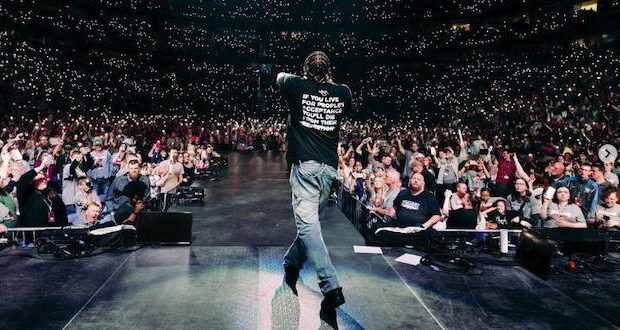More than 34,000 attendees made decisions for Christ during this year’s Winter Jam Christian concert tour, claims Zane Black, who served as pastor for the tour.
“They are inundated with the counterfeit — whatever is edited, cropped, filtered,” he says. “The digital age has pushed them so far into the world of AI that they long for something real. And so I think we have an opportunity within the church to present authentic, real truth in an age of the artificial and skeptic. There is a real God. There’s a book that is true. And there’s a love that is life-changing, that’s tangible.”
This year’s tour, which has become a money-making juggernaut, featured 10 artists, including Crowder and Lecrae, and had an affordable admission $15 admission price and was promoted on TikTok, Instagram and Facebook. The event, which has been criticized by some who allege it pushes a watered-down Gospel and fails to speak out on sin, delivers a brief gospel presentation at the midway point each night, many of which were sold out. “There’s so many who are excited about sharing the life of Christ with their friends,” Black said.
Winter Jam has two purposes, it says, to share the gospel and encourage the faithful. Young believers who attend the concert can look around and tell themself, “I’m not alone,” Black said.
He believes there is more pressure on this current generation than ever before, much of it driven by social media.
“They’re comparing themselves with all these false images,” he said. “To me, it comes down to real identity. Students are longing to know: ‘Who am I?’”
The church has an opportunity, he said: “We have the hope of Jesus and the word of God to say, ‘Here’s who God says you are — you are loved, you are chosen, you have purpose, no matter your past, no matter your future. Gen Z is hungry for that.”
Thos who made decisions are encouraged to fill-out a form on a mobile app called Gloo. The app collects personal data which is then used to connect that person with a local church.
–Alan Goforth
 Metro Voice News Celebrating Faith, Family & Community
Metro Voice News Celebrating Faith, Family & Community









